Where are we?
Fifty years ago, in 1966, the UN adopted two covenants – the International Covenant on Civil and Political Rights and the International Covenant on Economic, Social and Cultural Rights. The Universal Declaration of Human Rights was adopted earlier in 1948. Together, these three covenants are regarded as the International Bill of Human Rights. It was initially supposed to be a single bill thinking that the UN would formulate a complete document on human rights that would be unanimously accepted, but for reasons unknown, three separate documents had to be produced.
The theme of this year's Human Rights Day is – "Our Rights. Our Freedoms. Always."
For Bangladesh, this has been a year in which the freedom to exercise such rights have been blatantly ignored. From the freedom of life to freedom of livelihood, from the freedom of thought to freedom of expression, from the freedom of holding dissenting views to peacefully expressing them have all been flagrantly disregarded.
The beginning of 2015 was marked by political violence just as it was in 2014. The opposition parties called a rally for January 5 this year to demand fresh national elections by cancelling last year's January 5 polls that were boycotted by the main opposition. The government was adamant not to permit the Bangladesh Nationalist Party (BNP) to hold rallies while the BNP chairperson was confined to her office.
The government's rationale for doing so was apparently to avert possible acts of subversion. The indefinite blockade called by the opposition came into force across the country the following day, characterised by unprecedented violence. The blockade was carried on for 66 consecutive days. At least 70 people died in bomb attacks during this period. Women, children and the elderly – no one was spared from the attacks. Educational institutions including schools were also targets of attack. Vehicles carrying textbooks were set on fire. Almost all who died and were injured were commoners, mostly poor bus drivers, truckers, helpers and people who had no direct involvement in politics.
This was also the period when law enforcement agencies exerted excessive force. According to our account, 47 people were subjected to enforced disappearance between January and October. As of November 2015, 153 people were killed in so-called crossfire and gunfights. The majority of the victims of extrajudicial killings were opposition activists. Law enforcement agencies as usual have denied responsibility for the killings but families of most of the victims claimed that they [victims] had been picked up by men identifying themselves as law enforcement officials.
The overall picture of freedom of expression and press freedom has been worrisome this year. Not only have writers promoting freethinking and publishers publishing such works been killed in heinous attacks, there have also been attempts to silence dissenting voices through legal, administrative and judicial means. There has been no measure to discourage the intense intolerance towards dissenting opinions. Rather, such intolerance has been allowed to grow.
Science writer and founder of Mukto-mona Blog Avijit Roy was hacked to death while returning from Amar Ekushey Book Fair on February 26. His wife and co-writer Rafida Ahmed Bonya was also critically injured. Police were present near the scene of the attack but they failed to act promptly. Avijit's killing apparently turned the country into a death valley for freethinking authors and publishers as five such writers and publishers were brutally killed one after the other. As of November, two were injured and many are living in constant fear. Luminaries such as Dr Anisuzzaman, Hasan Azizul Haque and many other eminent writers and intellectuals have received death threats.
Suspects have been arrested in connection with the murders but law enforcement officials could not confirm if the arrestees were the real killers. The trials of the cases are progressing at a snail's pace while criminals have reasons to be incited by the comments of many government high-ups.
We have repeatedly voiced our concern about Section 57 of the Information and Communication Technology (ICT) Act, which contains elements that attempt to curb dissenting opinions and curtail freedom of expression. The arrest and remand of journalist Probir Sikdar under this Act and later his hasty release on bail was the most talked about incident in this regard. It was alleged that Probir Sikdar was arrested and taken to remand under this Act as he took a stand against the interests of influential people, but he was later granted bail after an order from the highest level of the state machinery.
Another incident in which the legal system was used arbitrarily was the arrest and remand of volunteers of Adamya Foundation, which works for street children. They were granted bail after nearly two months at the intervention from the highest level of government. The fact that the victims were bailed out in both the incidents brought relief but the manner of involvement of legal institutions as well as the authorities concerned is a cause for grave concern. Meanwhile, as I write this, it has been nearly a month since social media platforms such as Facebook, Viber and WhatsApp have been blocked.
This year, we were exposed to a shocking picture of human trafficking that included the discovery of numerous mass graves of Bangladeshis and Myanmar's Rohingyas in Thailand and Malaysia, and the loss of more than a hundred lives during scuffles at sea near Indonesia's Aceh coast.
These are the reports that remind us how unemployed, fortune-seeking Bangladeshis are embarking on perilous journeys to Malaysia after falling prey to human smugglers or because of the lack of initiatives that allow them to go abroad legally. Sadly, we do not see any legal measure being taken against traffickers.
This year, the UN Committee on the Rights of the Child has evaluated the child rights situation in Bangladesh. We have been hailed for a number of steps taken for the welfare of children but this year will be particularly remembered for the horrendous cases of child killing. It is not merely the number of children killed but the cruelty they were subjected to that indicates how sick the society has become. Most of the children killed were engaged in child labour. Seven children were killed in seven days from July 29 to August 4. We have, however, seen how rapidly justice was served in cases filed over the killing of Rajon, Rakib and Sayeed, but all these child abuse cases remind us of the necessity of being more aware of how we treat children.
A matter of serious concern this year was the reckless behaviour of government officials and influential politicians, and the attempt by the state to give them impunity. There were several incidents that reminded us of the sad reality that not all citizens are equal before the law. The incidents include Chhatra League and Jubo League infighting, a child getting injured in her mother's womb during a political clash and another shot by a lawmaker, and the underage nephew of an influential politician injuring pedestrians during reckless driving and the subsequent attempt by police to save him.
As for freedom to hold political meetings and rallies, the picture is sadly the same. In essence, opposition parties were not allowed to hold any meeting or rally while the party activists were arrested randomly on different grounds and were rejected bail.
Public protests have also been foiled by police who have used excessive force; this is completely unacceptable. These include protests against sexual harassment of women during Bangla new year celebrations, protests by teachers to press home their demands, students protests against question paper leaks, protests against the government's decision to set up Rampal power plant and rallies arranged by the indigenous communities, be it for protecting their lands or celebrating festivals.
The use of excessive force by police during a protest against the assault of a woman in the presence of her son in Tangail's Kalihati on September was beyond proportion. Three people were killed and many were shot when police exerted force on the protesters.
The rise of religious extremism this year is another issue that has been a cause for concern. Bangladeshi and foreign nationals have been killed and threatened in the name of different militant groups and the Shia community has been attacked for the first time in the country's history. The government has either decided to be in complete denial or has tried to blame the opposition.
We have noticed with concern that the state and its institutions are getting increasingly intolerant. The state is resorting to repression in the name of ensuring sovereignty and security.
But we need to be mindful that the sovereignty of the state is ultimately related to the sovereignty of its people. The state can truly ensure security by completely including the people in decision-making processes instead of isolating them. This integration is not possible unless people's freedom and human rights are safeguarded.
The writer is Executive Director, Ain o Salish Kendra (ASK) and former advisor to the Caretaker Government.
(Translated from Bengali)
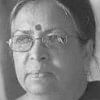
 For all latest news, follow The Daily Star's Google News channel.
For all latest news, follow The Daily Star's Google News channel. 

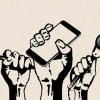

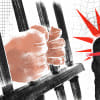
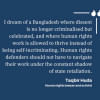
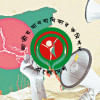


Comments